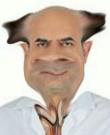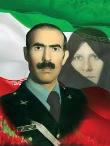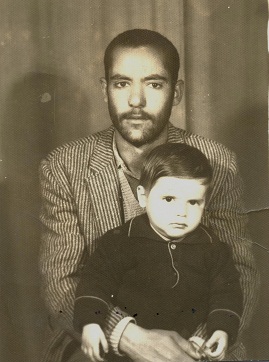


















?What is Depression
"Depression" is a mood disorder characterized by feelings of sadness, hopelessness, helplessness and worthlessness. It permeates through the body and mind. Depression lowers motivation and energy levels. This disorder takes control of the mind, body and soul. When depressed, you may often experience feelings of low esteem, guilt and self-reproach driving you to take irrational decisions. Depression often results from combination of factors - personal experiences, financial problems, tension or trauma in personal life. Whatever be the cause, depression is not just a state of mind. It is related to physical changes in the brain too. Depression is associated with an imbalance of neurotransmitters (chemicals that carries signals in your brain and nerves) in the brain.
Types of Depression
There are several forms of depression. Diagnoses for depression are mostly determined by the intensity and duration of the symptoms.
Clinical Depression - Major depression or clinical depression is among the most severe depression disorders. Clinical depression is diagnosed in terms of symptoms and severity of the symptoms. A person affected by clinical depression may appear fully dejected and disinterested in regular activities. The victim will be more or less in a hopeless state. Persons affected with clinical depression may undergo appetite and weight loss.
Dysthymic Disorder - Dysthymia is moderate level of depression. Most people go through this disorder even with out knowing that they are affected by dysthymia. These people undergo many changes that affect their quality of life. They may experience fatigue, sleeping and eating problems and be plagued by low self-esteem, guilt and negative thinking. These people may also suffer from concentration and memory problems. While the symptoms of dysthymia are not as pronounced as in clinical depression, they are more enduring and resistant to treatment.
Manic Depression - Manic Depression or Bipolar depression is a kind of disorder associated with mood shifts. People affected by manic depression have sudden extreme mood swings, much like a rollercoaster ride. Manic depression is characterized by mood swings that can sometimes to be quite rapid. People who suffer from manic depression have an extremely high rate of suicide.
Atypical Depression - This depression is common in women. Atypical depression is a variation of depression that is slightly different from major depression. The person affected may experience mood swings. Symptoms of atypical depression include fatigue, oversleeping, overeating and weight gain. This type of depression usually begins in adolescence and, if untreated, will often continue throughout life.
Psychotic Depression - People who suffer from major depression may also show symptoms of psychotic depression. The affected person may hear and see imaginary things - sounds, voices and visuals that do not exist. Persons suffering from psychotic depression are prone to hallucinations, which are common with someone suffering from schizophrenia. This kind of depression requires immediate attention, as consequences may be fatal.
Anxiety Disorder - Anxiety disorders are a form of emotional upsets. The affected person feels highly aroused and is afraid of a panic attack. An anxiety disorder is a constant feeling of tension and a person affected by this will have no reason for the way he/she feels.
Postpartum Depression - Postpartum depression is the kind of depression that occurs in women after pregnancy. Postpartum depression is considered to be a form of major depression due to the similarity of symptoms in both the conditions. Studies indicate that about 10 % of new mothers develop postpartum depression. There are indications that postpartum pregnancy is common in women who have already experienced some form of depressive illness. Postpartum depression can happen anytime within the first year after childbirth. The symptoms of this disorder may include sadness, lack of energy, trouble concentrating, anxiety, feelings of guilt and worthlessness. The postpartum depression symptoms are more prolonged, severe and disabling. Hence it requires immediate attention and medical care. If left untreated, postpartum depression may last for months or years. In rare cases it may even become worse and may lead to a severe form of depression called postpartum psychosis. A combination of medication and psychotherapy treatments can help you relieve from postpartum depression.
Signs and Symptoms of Depression
The following are some of the most common symptoms of depression. Depression isolates, disables and contributes to deteriorating physical as well as emotional health. The severity of these symptoms may vary from person to perso.
persistent sadness, anxiety or emptiness
feelings of hopelessness, pessimism
feelings of guilt, worthlessness, helplessness
loss of interest or pleasure in hobbies and regular activities, including sex
decreased energy, fatigue
difficulty concentrating, remembering and making decisions
inability to think clearly, feeling fuzzy-headed
insomnia, early-morning awakening or oversleeping
loss of appetite and/or weight loss or overeating and weight gain
restlessness, irritability
persistent physical symptoms that do not respond to treatment, such as headaches, digestive disorders and chronic pain
thoughts or talk of death or suicide; suicide attempts
thoughts or talk of self-harm or harm to others.
Depression treatment and support
Depression can be treated through a combination of medication, talk therapy and other treatment strategies worked by your health care professional at a depression treatment center. The right depression treatment is the one that works best for you.
Anti depression drug / Depression Medication Anti depression drugs are medications used to relieve and cure depression. They are used to treat serious, continuing mental depression that interferes with a person"s ability to function. These depression medications help reduce the extreme sadness, hopelessness and lack of interest in life that are typical in people with depression. All antidepressant drugs are effective, but certain types work best for certain kinds of depression. For example, people who are depressed and agitated do best when they take an antidepressant drug. Similarly, people who are depressed and withdrawn may benefit more from an antidepressant drug that has a stimulating effect.
These depression medications having different chemical structures act on different chemicals in the brain in order to relieve depression and mental disorders. However, the same depression medication may not be effective for everyone. It is essential to work closely with a physician to determine which anti depression medication might be best for you. Sometimes this may involve trying more than one medication or a combination of medications. Never change your dosage or discontinue your medication without talking to your doctor. The list of medications provided here is just for information and does not replace your consultation with the physician. Some antidepressants prescribed by physicians include
Zoloft
Zoloft (Sertraline) is an anti depression drug indicated for the treatment of mental disorder. It improves a depressed person"s mood. This medication is generally prescribed for people with an obsessive compulsive disorder, panic attacks, post-trauma stress or anxiety disorders. Zoloft works by increasing the activity of the chemical sertonin in the brain.
Depression treatment
Talk Therapy - Apart from medication, your health care professional at a depression treatment center may also suggest psychotherapy or talk therapy in order to relieve your mental disorder. Psychotherapy can be used alone or in combination with other treatments and depression medications. However talk therapy is well suited to treat cases of mild to moderate depression. People with severe forms of depression may not benefit from psychotherapy until their symptoms have been lifted through another means of treatment. Interpersonal, groups and family can provide depression help.
Electroconvulsive Therapy (ECT) - Electroconvulsive therapy is used to treat severe form of depression at a depression treatment center. When medications and psychotherapy fail to reduce symptoms, ECT can be an alternative treatment. ECT relieves depression through electrical stimulation to the brains. ECT is a painless form of depression treatment as muscle relaxants are administered to the anesthetized person to eliminate shaking.
Deep Brain Stimulation - Deep brain stimulation therapy is used to help depression patients, who do not respond to psychotherapy or ECT. Deep brain stimulation is based upon the observation that a region of the brain called Brodmann area 25 is metabolically overactive in treatment-resistant depression. However, there are not enough studies to prove the effectiveness of this therapy.
Depression support groups There are many depression support groups available both online and offline. Psychiatrists and psychologists of these centers help the depressed person through regular counseling. With the development in technology, there are also many online depression forums to help support the depressed one
WEST AZARBIJAN URMIA--Dr.RAHMAT SOKHANI